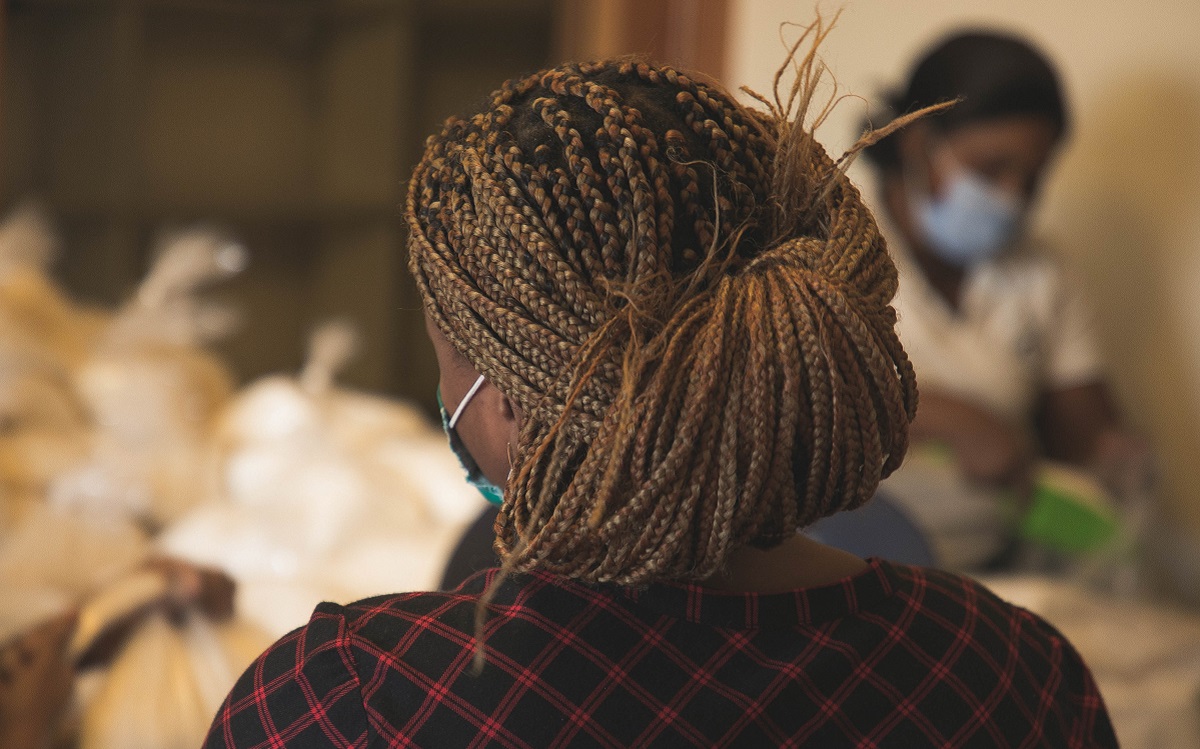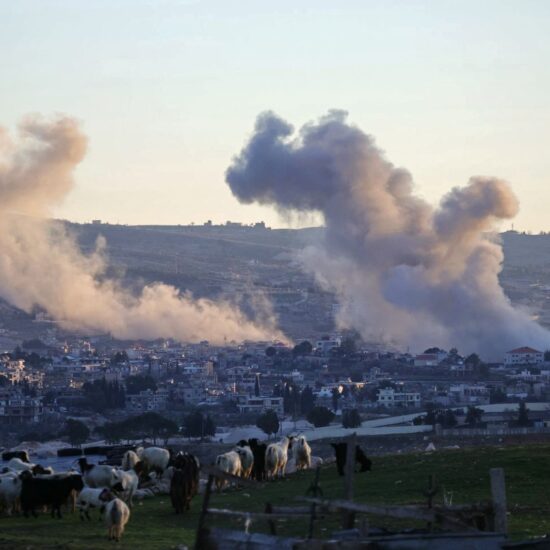
Across online platforms, in-print, through documentaries, in film, across posters hoisted during protests, through studies, research reports, and activism, and via incidents witnessed every single day, the numerous, specific, and ever-growing struggles faced by marginalized and vulnerable migrant worker communities in Lebanon have been increasingly brought to light, more so in the past few years than ever before.
As part of a growing movement in the country, a motif of “all oppression is connected,” the intersection between social and systemic racism and the fight against oppressive and corrupt systems are being increasingly vocalized and advocated.
What is important to know in parallel to this is that within migrant communities themselves, where voices are often muffled amid a plethora of overbearing conditions against them, the ways in which intra and inter-communal support on a volunteer basis help individuals cope is a strong force worth accentuating, exploring, and ultimately learning from.
In the words of Mariam from Sierra Leone, “what we go through here as migrant workers would be impossible to deal with if we didn’t have each other.”
“It is much harder today”
Deconstructing a labyrinth of structural, economic, political, social, and humanitarian crises, it is nothing new to say that Lebanon’s ability, as a country and as a people, to meet the needs of its residing citizens is well below par, if not completely non-existent.
Even prior to the more recent disintegration – in the form of micro-financial failures, inflation, major economic contraction, the effects of the COVID-19 pandemic, and the Beirut Port Blast – the country’s infrastructure, administrative systems, and underlying geopolitical implications and proxy politics left little room to create solid foundations for any potential towards thriving local communities – let alone any potential for a protected, prosperous, and proactive migrant community.
“Before was not like today,” says Boutèyévva, a migrant worker from Benin. “It is much harder today.”
Apart from the existing repercussions of the Kafala System, racial injustice and discrimination, and inadequate access to social, legal, and support, the migrant community in Lebanon and other vulnerable groups suffer most from the economic crises in Lebanon as they have less of a margin to mitigate its impact.
A newsletter by the Anti-Racism Movement (ARM) in Lebanon stated that “migrant workers in Lebanon were severely hit by the economic crisis [and] more and more workers are made homeless every day, either by their employers who dismiss them without wages or by their landlords who evict them due to their inability to pay rent.”
In addition to this, 32 percent of migrants reported experiencing threats of abuse, violence, exploitation, and trafficking in the past few years, as per a World Vision Lebanon report.
The question then poses itself, in light of the stark reality: what are some ways in which migrant communities and individuals in Lebanon support one another?
The truth is that there are many. Through the efforts of migrant community leaders with the support of notable groups and organizations, such as ARM, much is being done to sustain strong migrant workers communities and support migrant worker self-advocacy and self-organizing.
However, for the purpose of this article, and from the perspective of the co-founder of The Volunteer Circle (TVC) – a social enterprise and online platform striving to redefine volunteerism and make it readily accessible to support growing needs in Lebanon – a specific aspect to explore is the role of “volunteerism” – in the rawest most intrinsic sense of the word – within migrant communities.
Interviews conducted with women migrant workers described personal accounts of volunteering and the ways in which it alleviated some of the most difficult times, improved the quality of daily life, and widened networks of support and exchange, from the standpoints of both the recipients and the volunteer themselves.
“They are volunteering without knowing that it is volunteering”
The discussions with migrant workers in Lebanon provided a glimpse into the ways in which volunteering takes place among migrant communities in the form of direct aid relief and provisions, advocacy, and working with volunteers through organizations and centers supporting other migrant workers, such as ARM’s Migrant Community Center (MCC).
As a start, while much about aid provision and donation has been contested in terms of the top-down Western aid model that relies on a “moral hierarchy of wealth” and that tends to depend on quantitative incentives without precise regard for the specific needs of the community in question, the act of volunteering within marginalized communities can be more impactful, in and of itself, than the work of volunteers from outside of the community.
Regarding direct relief volunteering among migrant communities in Lebanon, most of the women I spoke to recounted their experience volunteering with their local church or local support groups providing basic provisions such as food, clothing, and supplies.
With time, they were able to develop a network of contacts and friends that helped them better understand the different needs of different households. “The church was working with an organization donating food baskets,” described Mariam. “Since I knew where all the migrant workers lived, especially the ones who needed help the most, they would ask me to distribute it to them directly. I volunteered with them for two months in total.”
This form of support is not only localized to one community or one geographical scope. Ayialem, from Ethiopia, has been in Lebanon for 21 years and volunteers on her time off on Sundays to cook and deliver food to migrant workers based in Tripoli or incarcerated in detention centers.
“We cook food and take it to migrant workers in detention centers in Verdun and Baabda, and once or twice a month, we deliver food to Tripoli,” she says.
“They wait for us every Sunday. This is why I do this with my own intention, and it is the best way for me to spend my time.”
Even in situations where access to external sources is unavailable, volunteerism is cited as an impactful, changing factor. “I started helping migrant women however way I could, even with just advice or helping someone demand their wages,” Boutèyévva described.
This created a ripple effect of one person helping another however possible and whenever the need arises, which, in Boutèyévva’s words, suggests “they are volunteering without knowing that it is volunteering.”
Volunteering can manifest in the powerful form of bringing to the forefront the concerns of migrant worker communities, becoming an avenue for advocacy.
Mariam recounts her own volunteer experience, recording her voice and participating in advocacy videos to share accurate information from the source.
“If there is an opportunity for the voices of my colleagues to be heard, it makes me happy to speak on their behalf about the things they are facing. I can express what I see from the inside, talk about the work the migrant workers are doing, what they need the most, and what goals they have achieved.”
She also described encouraging some of her colleagues and friends from other nationalities to do the same, claiming that through advocating “we understand and interact with different migrant communities” and find common grounds although backgrounds and experiences are different.
Through the MCC, “where migrant workers meet, organize, build alliances, and access information, resources, and direct assistance” (ARM) the migrant workers involved in the interviews expressed the ability to support one another on a continuous basis and work alongside active volunteers, access potential opportunities and assistance, and become part of a growing network, apart from benefiting from all that the center has to offer.
“Through the MCC, I worked with packaging and distributing items to fellow migrant workers, and it became my job,” Hanna from Ethiopia described. “At the time, it was better than sitting at home. My mind was occupied, and this is how I met other migrant workers, from other countries like Sudan and Nigeria, and all the people who support me. Even my children are happy here at the center.” Ayialem claimed, “working with the MCC helps us expand our network for when we need it.”
I am a community leader
Within the broader scope of systematic repression and relentless barriers that will possibly take years to dismantle, the impact volunteerism can have might be small in terms of its tangible impacts, but significant in terms of the values and notions it inspires, perhaps even as a stepping stone towards allowing for more autonomy and collaboration between migrant communities – potentially even presenting a model that can be replicated and learned from.
“Before, I just helped those I knew. Now, I am a community leader,” Boutèyévva described, referring to the growth of her network and channels of support through her volunteering endeavors and experience.
It is also worth considering the ways in which voluntary work and interactions influence the overall emotional disposition of some individuals amid increasingly difficult circumstances.
“I feel happy […] when people who I know or people from different nationalities who I don’t know just call me to thank me. Sometimes you work to leave a footstep – someone saying: ‘through her, we survived,” Mariam says.
Bouteyevva shared similar sentiments, stating “I help because it is part of my personality. It is a special feeling I can’t describe. It just makes me happy.”
Thinking ahead after these informative, inspiring, and humbling accounts by migrant women facing a diversity of challenges every day, the question arises of whether or not enough thought has gone into ways to expansively integrate the positive values associated with volunteering with ideals of community building, mutual aid, and prospective autonomy within smaller-scale communities in the face of wide-scale failures.
Using a popular idiom in Arabic to explain the drive behind her work – “one hand doesn’t clap” – Ayialem shares the declaration she repeats to herself and her fellow migrant workers in the face of adversity: “let us stand up and help each other… Let us exchange, let us distribute equally.”
Many thanks to the Anti-Racism Movement (ARM) for facilitating these interviews.
Nadine Makarem has been active within the civil society sector since the onset of her professional career, but she believes to be a writer at heart. Currently, she works for an international development agency and is the Co-Founder of a local volunteer platform called The Volunteer Circle. She spends her free time indulging in literature, music, and nature, and is avidly vocal and active – when possible – against global and local corruption and the ensuing rampant injustice.
The opinions expressed are those of the author only and do not necessarily reflect the views of NOW.







